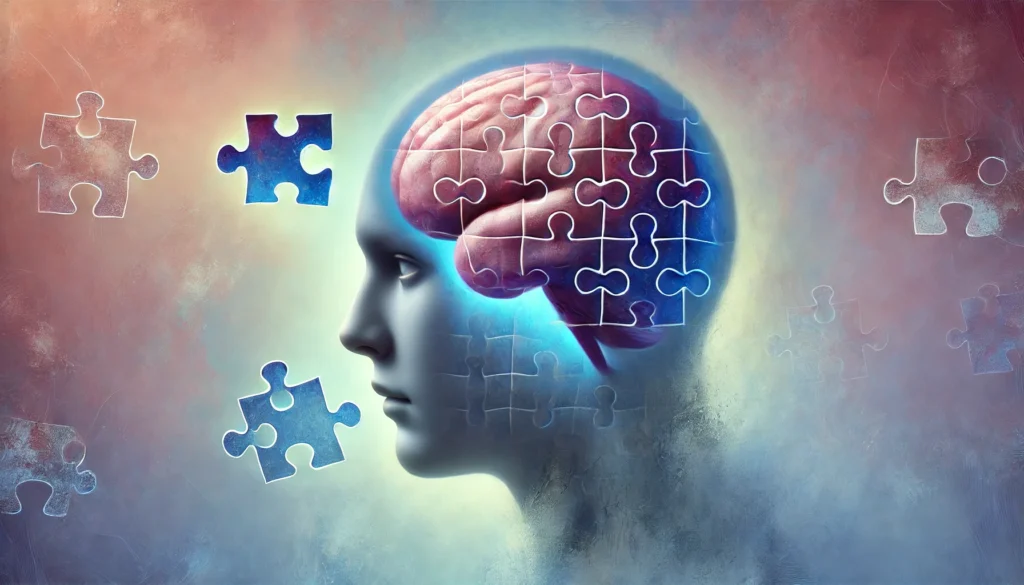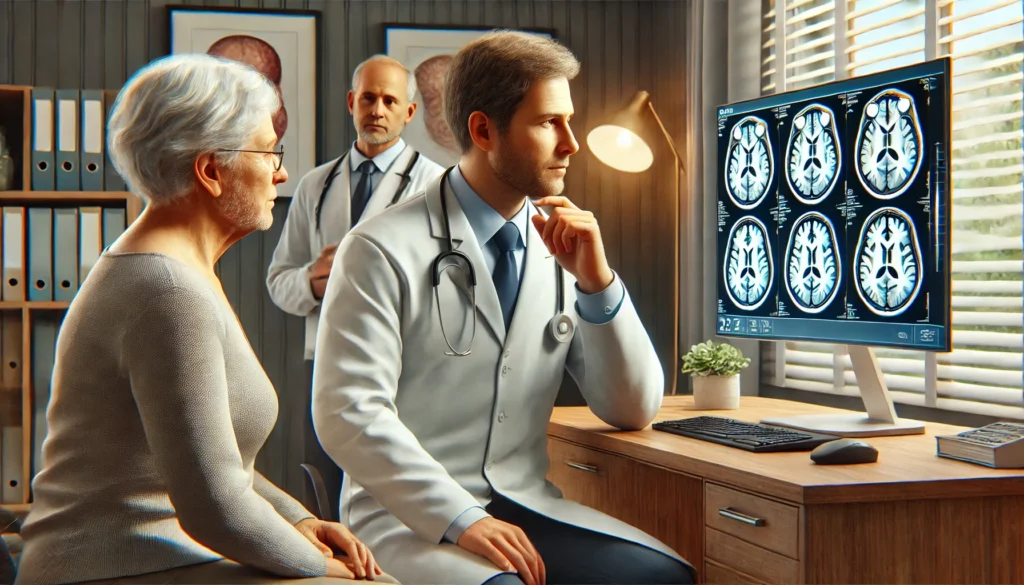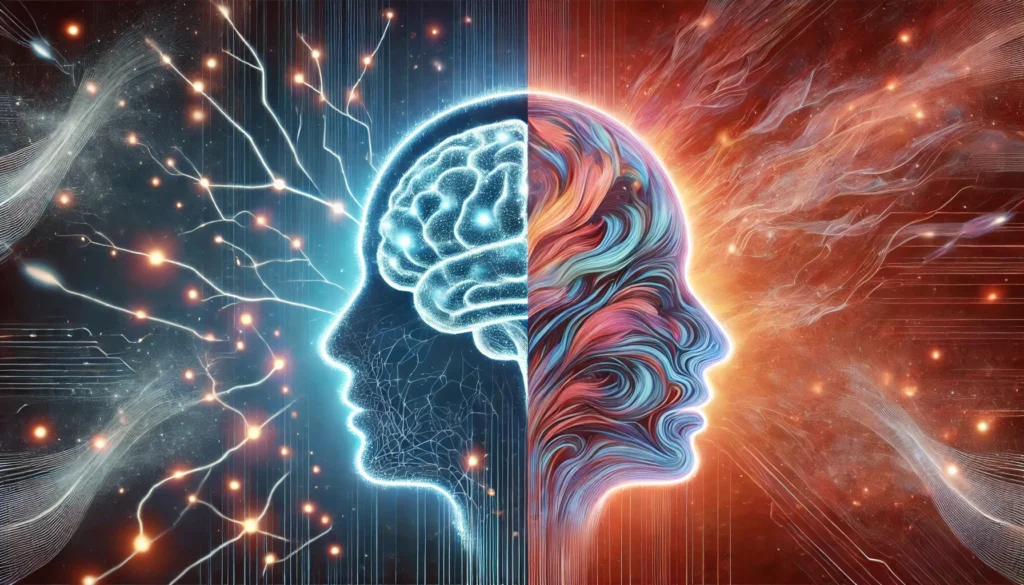Dementia is not a single disease but a general term for a decline in cognitive ability severe enough to interfere with daily life. It encompasses a range of symptoms affecting memory, thinking, and social abilities. Alzheimer’s disease is the most common cause of dementia, accounting for 60-80% of cases, but other types include vascular dementia, Lewy body dementia, and frontotemporal disorders.
You may also like: Tips to Improve Low Average Memory Performance
Different Types of Dementia
Dementia is an umbrella term that includes various specific conditions, each with distinct characteristics and underlying causes. Alzheimer’s disease is the most prevalent form, marked by plaques and tangles in the brain. Vascular dementia results from reduced blood flow to the brain, often following a stroke. Lewy body dementia involves abnormal protein deposits and shares symptoms with Parkinson’s disease. Frontotemporal dementia affects the brain’s frontal and temporal lobes, leading to personality changes and language difficulties.
Symptoms and Diagnosis
The symptoms of dementia can vary greatly, but common signs include memory loss, difficulty communicating or finding words, challenges with visual and spatial abilities, and impaired reasoning or judgment. Diagnosing dementia involves a thorough medical evaluation, including a detailed patient history, physical examination, tests, and sometimes brain imaging.
Diagnosing dementia is a comprehensive process that requires careful assessment. Medical professionals begin with a detailed patient history to understand symptom progression and potential risk factors. Physical examinations are conducted to rule out other health conditions that may mimic dementia. tests assess cognitive function, motor skills, and reflexes. Brain imaging, such as MRI or CT scans, may be employed to identify structural changes in the brain.
Cognitive and Behavioral Changes
Dementia is a condition that results in considerable alterations in cognitive functions, such as memory, thinking, and reasoning abilities. Alongside these cognitive challenges, individuals may experience changes in their behavior and emotional responses as well. These changes can create feelings of confusion, frustration, and sadness for the person experiencing dementia. Furthermore, family members and friends may also find these developments to be quite troubling as they watch their loved one struggle with these transformations, leading to distress on both sides. This situation often requires adjustments in the caregiving environment and emphasizes the need for support for everyone involved.
Memory loss is often the first noticeable sign, but as the condition progresses, difficulties in communication, problem-solving, and planning become apparent. Behavioral changes may include mood swing, and depression. Understanding these symptoms is crucial for providing appropriate care and support.
Is Dementia a Mental Disorder?
The question of whether dementia is a mental disorder is a subject of ongoing debate in the medical community. Traditionally, mental disorders are categorized under psychiatric conditions, which include mood disorders, anxiety disorders, among others. Dementia, however, is primarily a condition, characterized by cognitive decline due to damage or disease in the brain.
Dementia and Mental Health
While dementia is rooted changes, it also significantly impacts mental health. Individuals with dementia often experience mood swings, depression, anxiety, and behavioral changes. These symptoms intersect with what is typically considered mental illness, leading to the question of dementia’s .
The overlap between dementia symptoms and mental health disorders complicates its . Mood swings, depression, and anxiety are common in dementia patients, blurring the lines between and psychiatric conditions. Behavioral changes, such as aggression or apathy, can also mimic mental health disorders. This intersection highlights the importance of a holistic approach to diagnosis and treatment.

Medical Literature
In the Diagnostic and Statistical Manual of Mental Disorders (DSM-5), dementia is classified under ” disorders,” which acknowledges its basis while recognizing its psychological and psychiatric.
This classification serves an important purpose by connecting the fields of neurology and psychiatry, indicating how intertwined these two areas of medicine can be, especially in the context of dementia.
This statement highlights the complex and multifaceted nature of dementia. It emphasizes that dementia should not be understood solely as a neurological disorder that impacts the physical functions of the brain. Instead, it is also important to acknowledge that dementia significantly affects mental health. This includes its profound impact on cognitive abilities, which encompass processes such as thinking, memory, and understanding, as well as influencing behavior and overall emotional well-being. In essence, dementia is a condition that intertwines neurological and psychological aspects, making it crucial to consider both elements when discussing its effects on individuals and their quality of life.
By understanding dementia through this dual lens, healthcare professionals can appreciate its multifaceted nature and address the needs of patients more effectively.
The DSM-5 classification reflects a nuanced understanding of dementia, recognizing its dual nature. By categorizing it as a neurocognitive disorder, the manual acknowledges both the brain’s structural changes and the resulting psychological symptoms. This classification encourages integrated treatment approaches, combining neurological and psychiatric care to address the diverse needs of dementia patients.
Perspectives from Neurology and Psychiatry
Neurologists and psychiatrists often collaborate in the treatment of dementia, each bringing a unique perspective. Neurologists focus on the biological and structural aspects, while psychiatrists address the emotional and behavioral components. This interdisciplinary approach ensures comprehensive care, addressing both the physical and mental health needs of individuals with dementia.
Historical Context and Current Trends
Historically, dementia was often misunderstood and stigmatized as a natural part of aging or simply “senility.” Advances in medical research have significantly altered our understanding of dementia, recognizing it as a distinct condition rather than an inevitable consequence of growing old.
Early Misconceptions
For centuries, dementia was viewed as an unavoidable aspect of aging, often dismissed as “senility.” This misconception led to stigma and neglect, with little distinction made between normal aging and pathological conditions. Early medical literature lacked the tools and knowledge to dementia from other age-related changes, resulting in widespread misunderstanding.
Advances in Research
The 20th century brought significant advances in dementia research, fueled by technological innovations and increased awareness. Breakthroughs in neuroimaging and genetic studies provided insights into the biological underpinnings of dementia. These advancements reshaped our understanding, recognizing dementia as a complex interplay of genetic, environmental, and lifestyle factors.
Modern Approaches to Dementia
In today’s healthcare landscape, there is a significant emphasis on the importance of identifying and diagnosing dementia at an early stage. This proactive approach allows for timely interventions that can greatly enhance the overall quality of life for those affected by this condition. By recognizing the symptoms and indicators of dementia sooner, healthcare providers and caregivers can implement strategies and support systems that help individuals maintain their independence and manage their symptoms more effectively.
Modern approaches emphasize a combination of medication, lifestyle changes, and supportive therapies. These include cognitive therapy, physical exercise, and dietary modifications, which can help manage symptoms and slow disease progression.
Modern approaches to dementia care prioritize early detection and intervention, aiming to slow disease progression and enhance quality of life. Medications, such as cholinesterase inhibitors and memantine, target specific symptoms and may improve cognitive function. Lifestyle changes, including regular physical exercise and a balanced diet, support overall brain health. Supportive therapies, like cognitive rehabilitation and social engagement, provide essential emotional and social benefits.

Future Implications
As our understanding of dementia evolves, so too does the potential for new treatments and interventions. Researchers are exploring various avenues, including pharmacological treatments, gene therapy, and lifestyle interventions, to prevent or delay the onset of dementia.
Innovative Research Directions
Innovative research is paving the way for groundbreaking treatments in dementia care. Scientists are exploring pharmacological solutions that target amyloid plaques and tau tangles, aiming to alter disease progression. Gene therapy offers promising possibilities, with studies investigating genetic modifications to prevent or delay dementia onset. Additionally, research into lifestyle interventions highlights the potential of diet, exercise, and cognitive training to reduce risk.
The Role of Technology
Technology plays an increasingly important role in dementia care. Innovations such as telemedicine, wearable health devices, and artificial intelligence are transforming how we diagnose, monitor, and treat dementia. These technologies offer promising possibilities for enhancing patient care and supporting caregivers.
Telemedicine provides remote access to medical consultations, reducing barriers to care and facilitating regular monitoring of dementia symptoms. Wearable health devices track vital signs and activity levels, offering real-time data to healthcare providers. Artificial intelligence assists in early diagnosis, analyzing patterns and predicting disease progression. These technological advancements enhance patient outcomes and provide valuable support to caregivers.
Ethical Considerations
As dementia research and treatment advance, ethical considerations come to the forefront. The use of technology and genetic interventions raises questions about privacy, consent, and accessibility. Balancing innovation with ethical responsibility is crucial, ensuring that new treatments are safe, equitable, and respectful of individual rights.
Practical Advice for Managing Dementia
For those dealing with dementia, whether personally or as caregivers, practical strategies are essential. Here are some tips:
Stay Informed
Educate yourself about dementia and its effects. Understanding the condition can reduce fear and empower you to make informed decisions.
Keeping yourself informed about the most recent research developments and available treatment options can significantly enhance your ability to advocate for yourself or someone you care about. By being aware of the latest findings and advancements in medical science, you can engage in more informed discussions with healthcare professionals, understand the implications of various choices, and make decisions that align with the best interests and needs of yourself or your loved one. This knowledge empowers you to navigate the healthcare system confidently and assertively, ensuring that you have a clear voice in the decisions that affect health and well-being.
Knowledge is a powerful tool in navigating the complexities of dementia care.
Promote Brain Health
Encourage activities that stimulate the brain, such as puzzles, reading, and social interaction, which can help maintain cognitive function. Engaging in regular physical exercise, like walking or dancing, supports overall brain health and well-being. A balanced diet rich in antioxidants and omega-3 fatty acids nourishes the brain and may reduce dementia risk.
Create a Safe Environment
Ensure the living space is safe and supportive for someone with dementia, minimizing hazards and promoting independence as much as possible. Simplifying the home layout and labeling items can reduce confusion and enhance safety. Installing grab bars, adequate lighting, and non-slip mats helps prevent accidents and fosters a sense of security.
Seek Support
Join support groups or seek professional counseling to share experiences and gain emotional support. Connecting with others facing similar challenges provides comfort and valuable insights. Professional counseling offers a safe space to express emotions and develop coping strategies. Support networks are vital for caregivers, offering respite and encouragement.

Conclusion
Dementia is a complex condition that straddles the line between neurological disease and mental disorder. Understanding its intricacies is crucial for effective management and care. As research progresses and our knowledge deepens, there is hope for more effective treatments and improved quality of life for those affected by dementia. Whether you’re a health and wellness coach, a science journalist, or a biohacker, staying informed about dementia is key to providing support and understanding in a world increasingly touched by this challenging condition.
Further Reading:
Let’s talk about dementia, mental illness and mental health
Mental Illness vs. Dementia in the Elderly
Important Note: The information contained in this article is for general informational purposes only, and should not be construed as health or medical advice, nor is it intended to diagnose, prevent, treat, or cure any disease or health condition. Before embarking on any diet, fitness regimen, or program of nutritional supplementation, it is advisable to consult your healthcare professional in order to determine its safety and probable efficacy in terms of your individual state of health.
Regarding Nutritional Supplements Or Other Non-Prescription Health Products: If any nutritional supplements or other non-prescription health products are mentioned in the foregoing article, any claims or statements made about them have not been evaluated by the U.S. Food and Drug Administration, and such nutritional supplements or other health products are not intended to diagnose, treat, cure, or prevent any disease.


